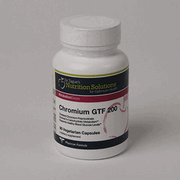By Dr. Rick Tague
Coenzyme Q10
Coenzyme Q10, aka ubiquinone or CoQ10, is a fat-soluble vitamin-like substance. It is involved in several key steps in the production of energy within a cell, and also functions as an antioxidant that helps protect cells from free radical damage. CoQ10 can be depleted by illness, stress, aging, and cholesterol-lowering “statin” medications. Depletion of CoQ10 leads to degeneration of cells, which ultimately may contribute to conditions such as high blood pressure, heart disease, and tissue breakdown.
CoQ10 is available in very small amounts in many foods. The richest sources being organ meats, beef, soy oil, sardines, mackerel, and peanuts. To get just 30 mg of CoQ10, you would need to eat a pound of sardines, two pounds of beef, or 2.5 pounds of peanuts!
At this time, it is not clear if CoQ10 deficiency is a cause of certain diseases such as heart disease, obesity, and diabetes to name a few, or a result of the disease. What is clear is that many Americans are deficient in CoQ10 and it may be affecting their heath.
Let’s look at the data….
Obesity: In a small Belgian study with 27 patients, subjects were divided into two groups. Group A was classified as being CoQ10 deficient, while Group B was classified as having normal levels. Both groups were placed on controlled reducing diets and both were given 100 mg of CoQ10 daily. After 9 weeks, Group A had lost an average of 30 pounds and Group B an average of 13 pounds. This study indicates that for obese individuals who are CoQ10 deficient, supplementation may facilitate weight loss. More research is needed. (Van Gaal, L.)
Statin Therapy: Statin drugs such as Lipitor, Crestor or Zocor can affect the body’s production of CoQ10 and decrease levels by about 40% (Ghirlanda G.). Some researchers believe that muscle aches commonly associated with statin drugs are due to a CoQ10 deficiency. 85% of patients on statin drugs with muscle pain improved within 30 days of taking 100 mg of CoQ10 daily.
Hypertension: CoQ10 was originally developed as a treatment for high blood pressure over forty years ago. It is still used for that purpose by doctors in Europe and Japan. It is estimated that nearly 40% of patients with hypertension have a CoQ10 deficiency. CoQ10 is not a typical antihypertensive drug; it apparently corrects a metabolic abnormality that favorably affects blood pressure (ProAccess Database).
Heart Disease: There is more CoQ10 in the heart tissue than in any other muscle in the body. Heart biopsies in patients with various heart diseases show a CoQ10 deficiency in 50-75% of the cases (Fokers, K).
Diabetes mellitus: It is theorized that using CoQ10 may enhance activity of certain enzymes and may stimulate insulin secretion. In one study, CoQ10 reduced fasting blood sugar by at least 20% in 14 of 39 patients, and by at least 30% in another 12 of 39 patients (ProAccess Database).
CoQ10 appears to be safe with no significant side effects. Reports have suggested that CoQ10 decreases the anticoagulant effect of coumadin. We do not recommend CoQ10 if you are on coumadin.
The Center for Nutrition recommends high quality, soft gels with oil suspensions of CoQ10 for better absorption. The general supplementation dose is 50-100 mg daily, with food. CFN’s soft gels contain 50 mg of CoQ10.

